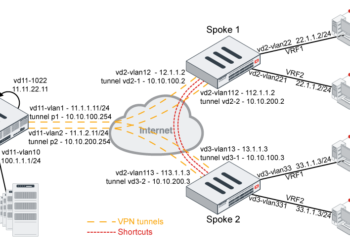Best Practices in Cloud Security Solutions for Indian SMEs
Cloud Security Primer
The cloud has changed the way we live and work, as well as the way we store our data and access software and applications. Yet as dependency is redirected towards cloud services, cloud security becomes an even more ubiquitous necessity. This blog post will discuss the cloud security advantages of cloud security for Small and Medium Enterprises (SME’s) in India, and also the best practices for the implementation of cloud security solutions.
Cloud Security Benefits For Small and Medium-sized Enterprise
Benefits of Cloud security for SMEs in India
Here are a few benefits of moving large data sets to cloud storage:
Better Data Security: Cloud providers use strong security measures, including encryption, firewalls and access controls to keep your sensitive business information safe.
Enhanced Collaboration: With the help of cloud-based collaboration tools, teams could easily communicate and share files amongst geographically distributed teams that help to enhance productivity and efficiency.
Lower costs: An increase in CAPEX related to hardware and software maintenance can be curtailed, with cloud services leading to less CAPEX, which in turn saves organisations money.
Scalability: Businesses can easily scale operations up or down as required, and access increased capacity, computing power, storage, and data processing capabilities on demand to accommodate changing market conditions and customer demands.
Disaster Recovery: Cloud providers provide auto backup and disaster recovery mechanism which promotes business continuity in a case of data lost or system failure.
Cloud Security Best Practices
Best Practices for SMEs in India to Safeguard Their Cloud Data & Applications
Select a cloud provider who is well noted for security and compliant with industry standards and regulations.
Specifically:
- Implement Strong Authentication and Authorization (MFA, Principal of Least Privilege): Provide multi-factor authentication (MFA) and role-based access controls so that only properly authenticated users and services might access sensitive data and applications.
- Encrypt Data: Employ end-to-end encryption to secure data when in transit and at rest, keeping it safe even if in the scenario it is accessed by unauthorized.
- Monitor and Audit: Monitor and audit the cloud-based systems continuously and take proactive measures to deliver a quick response to potential security threats.
- Keep Software and Systems Up-to-Date: Make sure that all software and systems have the latest security patches and updates to minimize exposure to common vulnerabilities that attackers may seek to exploit.
- Employee Training: Give a crash course to employees on what they should do to keep cloud data secure, and to also coach them in the essentials of safekeeping sensitive data and file modifications.
How to Integrate Cloud Security in Your Firm
Here are the key steps to begin integrating your business systems with Cloud Security:
- Evaluate your Current Security Posture: Perform a full security Research of your current security posture and observe any vulnerabilities and improve across the board.
- Establish a Cloud Security Strategy: Create a complete cloud security strategy detailing your security objectives, risk management policy, and incident response.
- Pick the Perfect Public Cloud Solutions: Pick cloud solutions that satisfy your company needs, and have the best possible security features as well as comply with all industry standards and regulations.
- Protect Cloud-based Data & Applications: Cloud-based data & applications should be protected with security controls such as encryption, firewall & access controls.
- Watch and Investigate: Monitor and audit cloud-based systems to identify and act as soon as any security threat arises.
How P J Networks Can Help
We know at P J networks, how Cloud Security for SMEs in India is a must. Our team of experts can assist you to develop a complete cloud security strategy and implement secure controls and controls over your cloud systems, and maintain and expose them to ensure their confidentiality and confidentiality. Get in touch to know more about our cloud security offerings and how we can assist you in flourishing in the cloud.
Conclusion
Cloud security is an essential part of any cloud strategy for Indian SMEs, and it cannot be overlooked as this may put the data and applications of the SMEs in peril. By doing so and, in parallel, by applying best practices as outlined in this article and by enforcing the correct security measures SMEs will be able to establish the security and integrity of their cloud-based systems, consequently securing their market leading strength.




